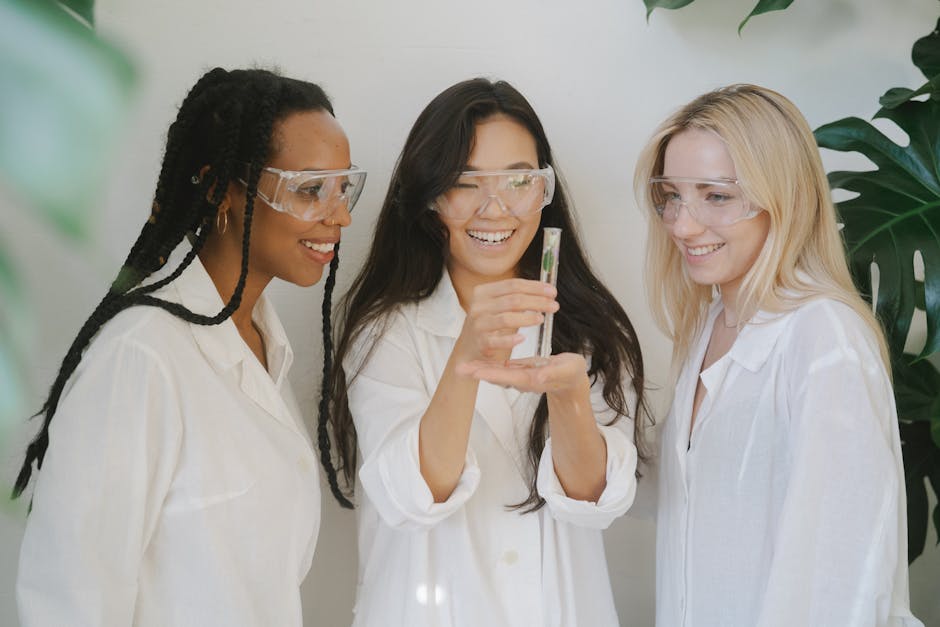No products in the cart.
Unlocking the Future: AI’s Role in Biology and Career Evolution
AI is transforming the landscape of biology, creating unprecedented career opportunities in genomics and biotech. Discover how this technology is shaping the future.
In a world where technology often seems to outpace our understanding, artificial intelligence (AI) is redefining the landscape of biological research. Imagine a realm where scientists can analyze vast amounts of genomic data in the blink of an eye, leading to breakthroughs that were once thought impossible. This is not science fiction; it’s the reality of today’s biotech industry. AI is not just a tool; it’s a catalyst for innovation, igniting new career paths in the fields of genomics and biotechnology.
The intersection of AI and biology is akin to a symphony, with each note harmonizing to create a powerful melody of discovery. As AI algorithms sift through mountains of genetic information, they reveal patterns and insights that can lead to the development of new treatments and therapies. For instance, researchers at Stanford University have utilized deep learning to predict the structure of proteins, a critical step in drug discovery. Such advancements are not just academic achievements; they are the foundation for a new era of medicine and research.

But as AI reshapes the scientific landscape, it also challenges traditional career trajectories within biology. The demand for data-savvy biologists is surging, creating a need for professionals who can bridge the gap between biological sciences and advanced computational techniques. Recent reports indicate that jobs in bioinformatics, a field that combines biology, computer science, and information technology, are expected to grow by 20% over the next decade, faster than the average for all occupations. This trend is not just about filling positions; it’s about creating a workforce equipped to tackle the complexities of modern biology.
As the biotech sector continues to expand, educational institutions are taking notice. Universities are revamping their curriculums to include AI and machine learning in biology programs. For example, programs at MIT and Harvard now emphasize interdisciplinary learning, blending biology with computer science and engineering. This shift is essential for preparing the next generation of researchers, who will need to navigate both the biological and technological realms.
The demand for data-savvy biologists is surging, creating a need for professionals who can bridge the gap between biological sciences and advanced computational techniques.
Yet, the integration of AI into biology isn’t without its critics. Some argue that the reliance on algorithms could overshadow the importance of traditional experimental methods. They warn that over-automation might lead to a loss of essential skills in the next generation of scientists. The challenge lies in finding a balance—leveraging AI’s capabilities while ensuring that foundational biological knowledge is not lost.
Moreover, there is a growing concern about the ethical implications of AI in research. Questions about data privacy, consent, and the potential for bias in algorithms are at the forefront of discussions among researchers and policymakers alike. As AI systems are trained on existing datasets, the risk of perpetuating biases in healthcare outcomes becomes a pressing issue. Ensuring that AI-driven research is both ethical and equitable is paramount as we move forward.
Looking ahead, the confluence of AI and biology promises not just new discoveries but new ways of thinking about careers in science. For young professionals, this is a golden opportunity. Those entering the job market today will find a landscape rich with potential. Start-ups focused on biotech innovations are emerging at an astonishing rate, many driven by young entrepreneurs eager to harness AI to solve pressing health challenges.
Consider the journey of Sarah Lee, a recent graduate who entered the world of bioinformatics. With a background in molecular biology and a passion for coding, she found herself at the forefront of a start-up that uses AI to analyze genetic data for personalized medicine. “I never imagined that my love for biology could lead me to work on technology that impacts real lives,” she shares. Sarah’s story is emblematic of a broader trend where passion meets opportunity, creating pathways that were previously unimaginable.
As AI continues to evolve, so will the careers tied to its advancements. The future will likely see a greater emphasis on collaborative roles, where biologists, data scientists, and ethicists work together to navigate the complexities of research. This interdisciplinary approach not only fosters innovation but also cultivates a more holistic understanding of the issues at hand.
For young professionals, this is a golden opportunity.
In conclusion, the fusion of AI and biology is not merely a trend; it is a transformative movement reshaping how we think about research and careers in the life sciences. For those willing to embrace the change, the horizon is bright. The world of biotech is calling, and it’s an invitation to all who dare to explore the uncharted territories of science and technology.











